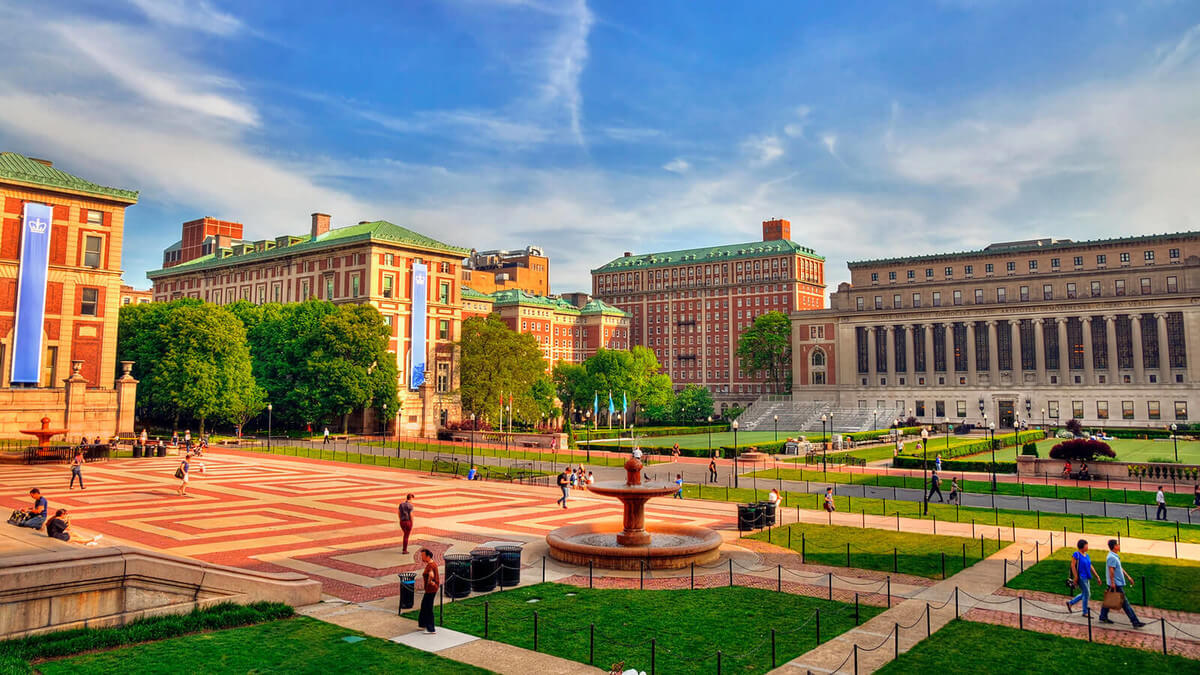In a bold move echoing the ongoing global solidarity for Palestine, activists at Columbia University have staged a sit-in at Hamilton Hall, one of the institution’s iconic buildings located in New York City. The occupation unfolded on Tuesday, coinciding with university officials’ announcement of restricted access to the campus for students and essential staff.
Columbia University, renowned for its academic excellence and located in the heart of Manhattan, became the focal point of attention as tensions escalated between protesters advocating for Palestinian rights and the administration’s enforcement of access limitations. The dispute intensified following the suspension of students who defied orders to disperse, marking a pivotal moment in the intersection of activism and academia.
The occupation of Hamilton Hall, a symbol of intellectual pursuit and scholarly discourse, underscores the urgency felt by supporters of the Palestinian cause to voice their concerns within educational institutions. As the global outcry against Israeli occupation and human rights violations continues, Columbia’s campus has become a microcosm reflecting the broader struggle for justice and solidarity.
The decision by university administrators to curtail access to the Morningside campus ignited a wave of dissent among students and faculty members alike. The abrupt imposition of restrictions, effective immediately, drew criticism for its perceived infringement on the rights of individuals to engage in peaceful protest and assembly.
In response to the administration’s actions, protesters converged on Hamilton Hall, employing civil disobedience as a means of amplifying their demands for solidarity with Palestine. The occupation serves as a potent reminder of the power of grassroots activism to challenge institutional norms and advocate for marginalized communities.
The significance of Columbia University as a bastion of intellectual inquiry imbues the protest with added resonance, as it reflects a broader reckoning with issues of social justice and human rights within academic spaces. The occupation of Hamilton Hall signals a refusal to remain silent in the face of systemic oppression and a commitment to fostering dialogue and awareness on pressing global issues.
Amidst the occupation, calls for dialogue and understanding reverberate, as both sides grapple with the complexities of the Israeli-Palestinian conflict. The demonstration encapsulates a desire for constructive engagement and meaningful action, urging stakeholders to confront uncomfortable truths and work towards a just and equitable resolution.
As the occupation unfolds, Columbia University finds itself at a crossroads, confronted with the imperative to uphold principles of free expression and academic freedom while navigating the complexities of political activism on campus. The events at Hamilton Hall serve as a potent reminder of the enduring power of protest to effect change and challenge the status quo.
In the midst of uncertainty and contention, the occupation of Hamilton Hall stands as a testament to the resilience of the human spirit and the unwavering commitment to justice and solidarity. As the world watches, Columbia University grapples with profound questions of conscience and collective responsibility, shaping the discourse on Palestine and the pursuit of a more just and equitable future.

